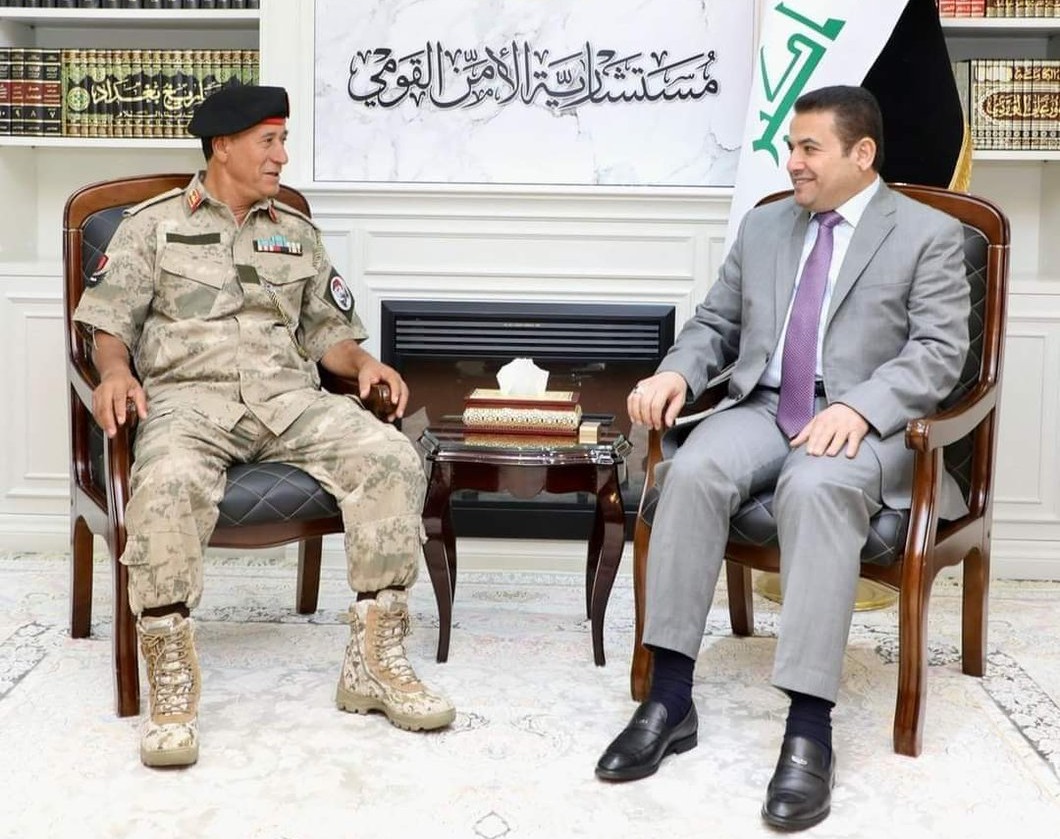A Libyan delegation visited Iraq on the 22nd of June, headed by General Mohamed Al Zain, the Head of Libya’s Anti-Terror Forces, during which they met with several Iraqi Officials, most notably the National Security Advisor Qasem El Araagy. Reports of the meeting indicated it covered issues of common interest to the two countries, especially security concerns, and the means to bolstering security relations and exchanging expertise in combatting terrorism. Although ISIS has been a much bigger security challenge to Iraq, Libya has also come to perceive the organization as a growing threat, and therefore it stands to benefit from Iraq’s experience in this regard.
It is worth noting that although ISIS has been expelled from the areas in which it was active in the north of Libya, such as the city of Sirte from which it was expelled in 2016, the organization has moved to the south, where it has carried out several operations since early 2019. While ISIS activities have decreased in southern Libya this year, with only 3 operations so far, most notably in the city of Sabha, its presence remains a security threat.The Anti-Terror forces , led by Mohamed Al Zain, are under the command of the Chiefs of staff of the Libyan Army in West Libya. They were formed in 2016 with support from the Presidential Council, ISIS was pushed out of Libya’s coastal areas. Head of the Unity Government, Abdel Hamid al-Debaiba last March attended the graduation ceremony of the Anti-Terror force with some members of the Presidential Council and a number of ministers.
The Libyan delegation met with several Iraqi officials, including the head of Iraqi National Security, the head of the Anti-Terror operations in Iraq Colonel Abdel Wahab Saady, the deputy of Joint Iraqi Operations Colonel Abdel Amir Elshamry, General Mohamed El Ethaway from the Ministry of Interior and the PR Head Doctor General Saad Moaan, to discuss possible avenues of cooperation and how Libya can benefit from the Iraqi experience in combatting terrorist and militant organizations.
Libya has not only been facing the threat of ISIS, but also African mercenaries and organized crime networks that are taking advantage of the unstable security situation in the south and along the Libyan, Sudanese, and Chadian borders. The delegation seeks advice on what is needed to develop its capabilities and to benefit from Iraq’s recent experience after ISIS was run out of their bases, whereby it proceeded to reorganize and conduct guerilla warfare tactics, which appears to be the approach ISIS is following in Libya.
The visit also highlights the need for intelligence cooperation, especially as there have been reports that ISIS is moving militants from its central command in Iraq and Syria to Libya, then on to other African states, most importantly Nigeria, which has been witnessing increasing activities from the West Africa branch of ISIS. Such cooperation could help halt the movement if ISIS militants to Libya, as well as providing the latter with valuable information on the group’s members and tactics.
The delegation from western Libya’s anti-terror force may also perceive the need to upgrade its capabilities as part of the ongoing competition with the forces of eastern Libya, under the command of Khalifa Haftar, which have so far been in the forefront of anti-terror operations in the southern areas. Haftar’s forces have a strong presence in the south, which receives a steady supply of military equipment, including heavy weaponry, and in fact carried out live-fire exercises just days before the visit. These forces also carry out regular sweeps of areas with suspected terrorist activities, through desert patrols that last several days. The latest of these was in Qatroun in the south, following several bombing operations by ISIS.
The visiting delegation also included representatives from the Ministry of Foreign Affairs in the Libyan National Unity Government, who met with officials in the Iraqi Ministry of Foreign Affairs. They discussed the strengthening of relations and bilateral cooperation, as well as the reactivation of the joint committee, in view of the upcoming opening of the Iraqi embassy in Tripoli. The visit can thus be interpreted as a signal from the National Unity Government headed by Abdel Hamid al-Debeiba that it has no intension of giving over the reins of power to the government of Fathi Bashagha, endorsed by the Libyan Parliament, and that it will continue to cement relations with regional and international actors.
In conclusion, it must be noted that while the visit of this delegation aims to augment efforts of combating terrorism and preventing ISIS from establishing a foothold in Libya and its neighborhood, the biggest obstacle to the success of these efforts remains the lack of coordination between competing military forces in Libya. The various Libyan factions have so far failed to reach an agreement on the unification of the various armed forces into one entity, despite repeated meetings to reach such an agreement. Conflicting visions and occasional clashes between armed entities in southern Libya are creating a suitable environment for ISIS to thrive and grow into a more dangerous threat.


